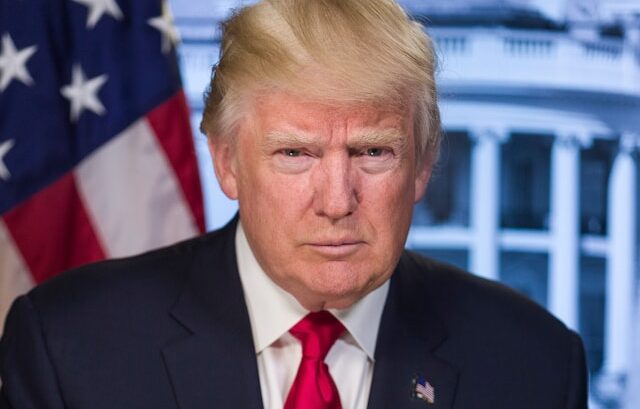Despite spy agencies’ findings, Trump insists Iran is nearing a nuclear bomb as he backs the Israeli stance over Gabbard’s assessment.
On a tense overnight flight back from a shortened G7 summit, President Donald Trump ignited a fresh firestorm by publicly rejecting the U.S. intelligence community’s latest assessment on Iran’s nuclear ambitions. Despite testimony from National Intelligence Director Tulsi Gabbard confirming that Iran is not actively building a nuclear weapon, Trump insisted Tehran is “very close” to acquiring one — siding with Israeli Prime Minister Benjamin Netanyahu’s warnings over his own top spy chief.
“I don’t care what she said,” Trump told reporters aboard Air Force One, brushing aside Gabbard’s statements made under oath in March. His remarks came as the White House prepared for emergency Situation Room meetings in the wake of Israel-Iran hostilities escalating into direct missile strikes.
Trump’s claim contradicts the U.S. intelligence community’s consistent position under both his and his predecessor’s administrations. In her congressional testimony, Gabbard told lawmakers: “Iran is not building a nuclear weapon and Supreme Leader Khamenei has not authorised the program he suspended in 2003.” However, she also highlighted a worrisome trend: Iran’s stockpile of enriched uranium is now at an unprecedented level for a non-nuclear state.
Still, Trump maintained a dramatically different position, echoing Netanyahu’s dire warnings that a nuclear-armed Iran poses an immediate existential threat to Israel.
The rift is especially striking given that Gabbard, a former Democratic congresswoman who endorsed Trump in 2024 and joined his administration as intelligence chief, was hand-picked for her loyalty. Yet even she could not fully close the gap between Trump’s political instincts and intelligence-based analysis.
Attempting to close ranks, Gabbard later told CNN that she and the president were “on the same page,” blaming the media for twisting her testimony. Her office declined further comment and pointed to those remarks.
Behind the scenes, the situation remains volatile. Trump is reportedly weighing new responses to the latest Iranian missile launches, while analysts worry his divergence from intelligence consensus could lead to policy decisions based on political optics rather than fact.
The dissonance between Trump and the intelligence community is nothing new. During his first term, he often clashed with intelligence officials, most infamously in 2018 when he publicly sided with Russian President Vladimir Putin over U.S. agencies on election interference.
Gabbard, meanwhile, continues to face scrutiny over her qualifications and actions as director of national intelligence. She recently fired two career intelligence officers who led an assessment debunking Trump’s claim that Venezuelan gang Tren de Aragua had state backing. In a follow-up statement, Gabbard supported Trump’s controversial deportation orders under the Alien Enemies Act, calling the removals “historic” and criticising “deep state actors” for using intelligence assessments to “attack the President’s successful policies.”
The CIA declined comment on Gabbard’s dismissal of top analysts. She is set to testify in a closed-door session on Capitol Hill alongside CIA Director John Ratcliffe to answer questions about Iran, Venezuela, and intelligence credibility.
Adding to the stakes, the head of the International Atomic Energy Agency (IAEA) warned again that Iran now possesses enough enriched uranium for several bombs if it chooses to weaponise. Iran continues to insist its nuclear programme is peaceful.
A November 2024 U.S. intelligence report under President Biden similarly concluded that while Iran was not actively building a bomb, it had taken steps to enhance its breakout capabilities — including increasing its uranium stockpile and deploying advanced centrifuges.
With direct military confrontations between Israel and Iran already underway, the risk of miscalculation grows. Analysts fear that Trump’s rejection of intelligence findings could push Washington further into confrontation, guided more by political alignment with Netanyahu than grounded national security assessments.
